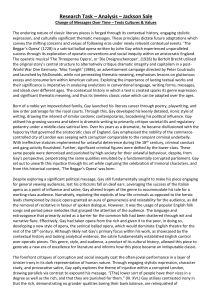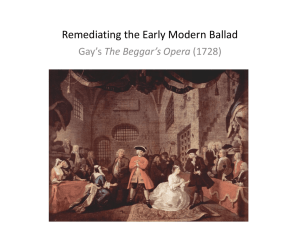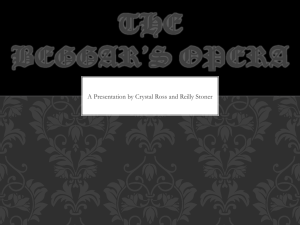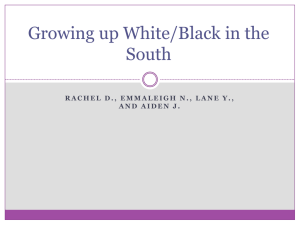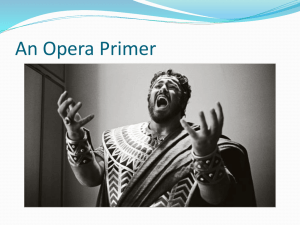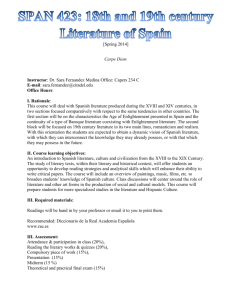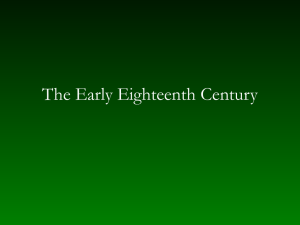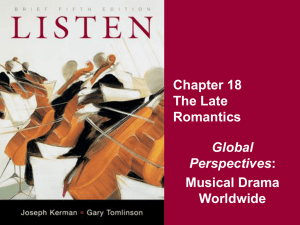John Gay, The Beggar`s Opera
advertisement
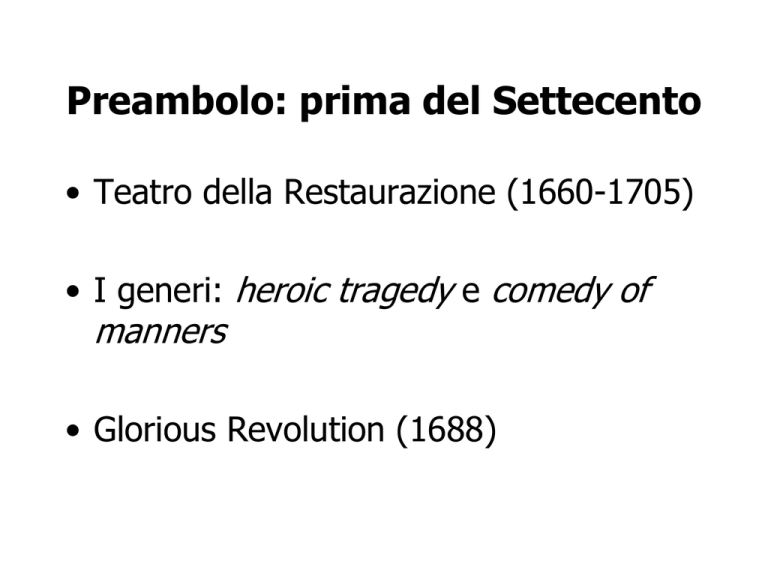
Preambolo: prima del Settecento • Teatro della Restaurazione (1660-1705) • I generi: heroic tragedy e comedy of manners • Glorious Revolution (1688) Il movimento per la riforma del teatro: sentimentalismo e sentimental comedy • Jeremy Collier, A Short View of the Immorality and Profaneness of the English Stage (1698) • Colley Cibber, Love’s Last Shift (1696): prima “sentimental comedy”. • Joseph Steele: scopo della commedia non è suscitare il riso ma “una generosa compassione” (epilogo a The Lying Lover); The Conscious Lovers (1722). Tragedia neoclassica e patetica • Joseph Addison, The Spectator; Cato (1713) • Nicholas Rowe: “she-tragedy”; The Fair Penitent, 1703: “sorrows like your own” • George Lillo: “domestic tragedy”; The London Merchant (1731) La satira politica e il mock-heroic: John Gay e Henry Fielding • Scriblerus Club • Parodia: John Gay, The What D’Ye Call It (1715), “a tragi-comi-pastoral-farce” John Gay, The Beggar’s Opera (1728): • “Newgate pastoral” • Dialogo Beggar/Player (“Introduction”): “I hope I may be forgiven that I have not made my opera throughout unnatural, like those in vogue”. • “ballad opera” John Gay, The Beggar’s Opera • Jonathan Wild (rogue literature) • Daniel Defoe, “The True and Genuine Account of the Life and Actions of the Late Jonathan Wild”, 1725 • Henry Fielding, “The History of the Life of the Late Mr. Jonathan Wild the Great”, 1743 John Gay, The Beggar’s Opera • Satira politica • Peachum (“impeach ‘em”) e Lockit (“lock it”): “'Tis for our mutual interest, 'tis for the interest of the world, we should agree” (atto II, sc. X) • Sir Robert Walpole (primo ministro whig, 1721-42) John Gay, The Beggar’s Opera • Critica sociale: l’etica borghese del profitto • Peachum a Lockit, II.10: “Business is at an end if once we act dishonourably” John Gay, The Beggar’s Opera • Satira del matrimonio borghese (Polly e MacHeath) • Mrs Peachum: “The comfortable estate of widowhood is the only hope that keeps up a wife's spirits” • Polly (1729) La carriera teatrale di Henry Fielding • Little Theatre (Haymarket) – teatri “illegittimi” vs. Covent Garden e Drury Lane • The Historical Register for the Year 1736 + Eurydice Hissed (1737) • Theatre Licensing Act, 1737 (censura preventiva del Lord Chamberlain + duopolio Drury Lane/Covent Garden) La seconda metà del secolo • “laughing” vs. “sentimental” comedy • Oliver Goldsmith, She Stoops to Conquer (1773) • Richard Brinsley Sheridan, The School for Scandal (1777) • Il nuovo Drury Lane (1794, Henry Holland) La scena spettacolare ottocentesca • 1. Il contesto: • ampliamento degli spazi • ricerca di effetti spettacolari (innovazioni tecniche) • frammentazione dello spettacolo (generi minori) • Teatro romantico: Byron, Werner (1830) • Teatro vittoriano > eclettismo • melodrama 2. La seconda metà del secolo • il ritorno della borghesia a teatro: Bancroft + Robertson al Prince of Wales • T.W. Robertson e gli ‘issue plays’: Society (1865), Caste (1867), Home (1869), Progress (1869), Birth (1870), War (1871) • Reform Act (1867) T.W. Robertson, Caste • “Caste is a good thing if it’s not carried too far. It shuts the door on the pretentious and the vulgar; but it should open the door very wide for exceptional merit. Let brains break through its barriers, and what brains can break through love may leap over” (III atto) Il “Society drama” • Scribe + Sardou: pièce bien faite > well-made play (Jones + Pinero) • fallen women plays • > A.W. Pinero, The Second Mrs Tanqueray (1893) • (Henrik Ibsen 1828-1906) G. B. Shaw e il “social drama” • Fabian Society • The Quintessence of Ibsenism (1891) G. B. Shaw e il “social drama” • • • • Plays Unpleasant: • • • • Plays Pleasant: Widower's Houses (1892) Mrs Warren’s Profession (1893) The Philanderer (1893) Arms and the Man (1894) Candida (1894) You Never Can Tell (1895) Mrs Warren’s Profession • “prostitution is caused, not by female depravity and male licentiousness, but by simply underpaying, undervaluing, and overworking women so shamefully that the poorest of them are forced to resort to prostitution to keep body and soul together” (Mrs Warren's Profession, Prefazione) Mrs Warren’s Profession • “The only way for a woman to provide for herself decently is for her to be good to some man that can afford to be good to her. (…) Ask any lady in London society that has daughters; and she'll tell you the same, except that I tell you straight and she'll tell you crooked” • (Kitty Warren alla figlia Vivie, Mrs Warren's Profession, Atto II)
